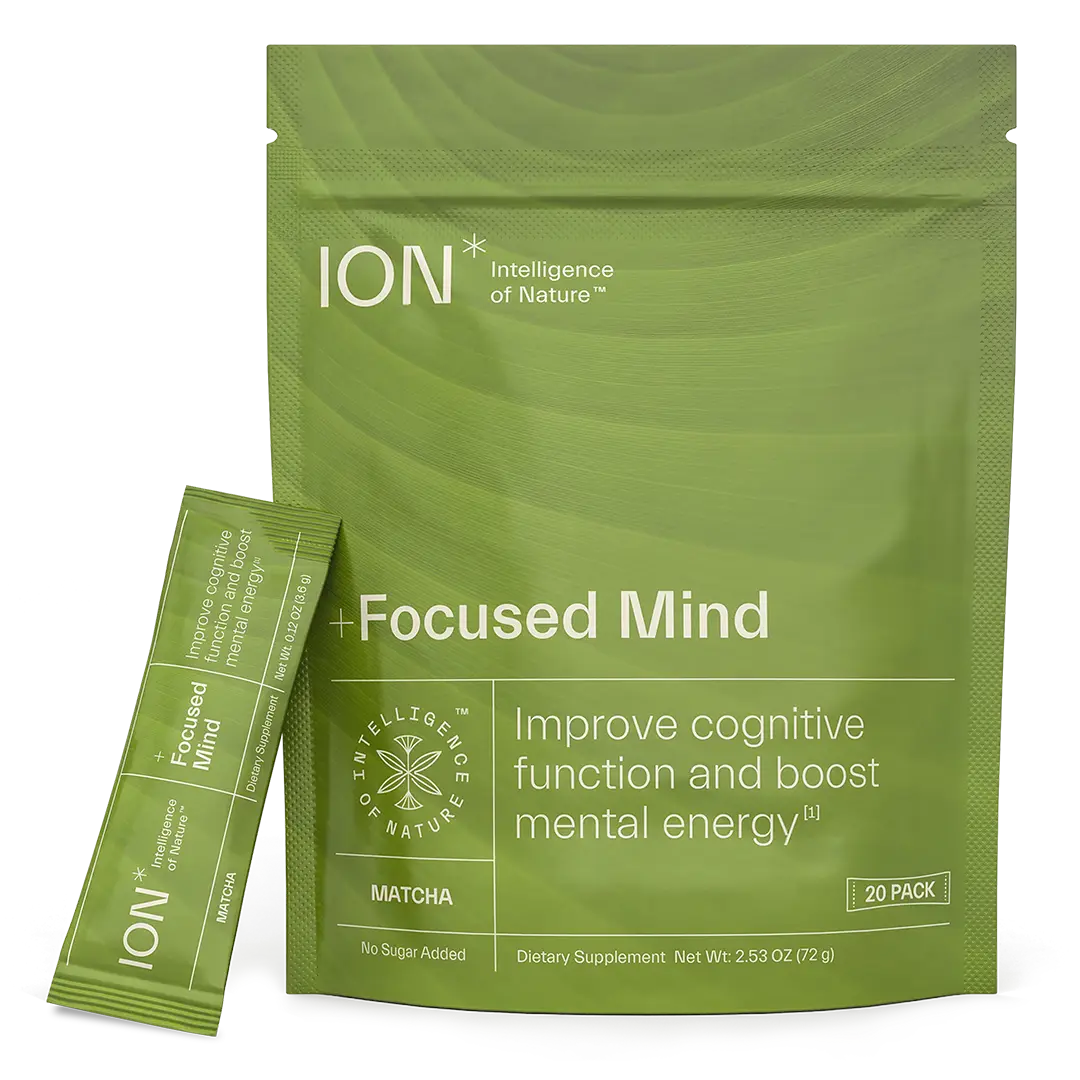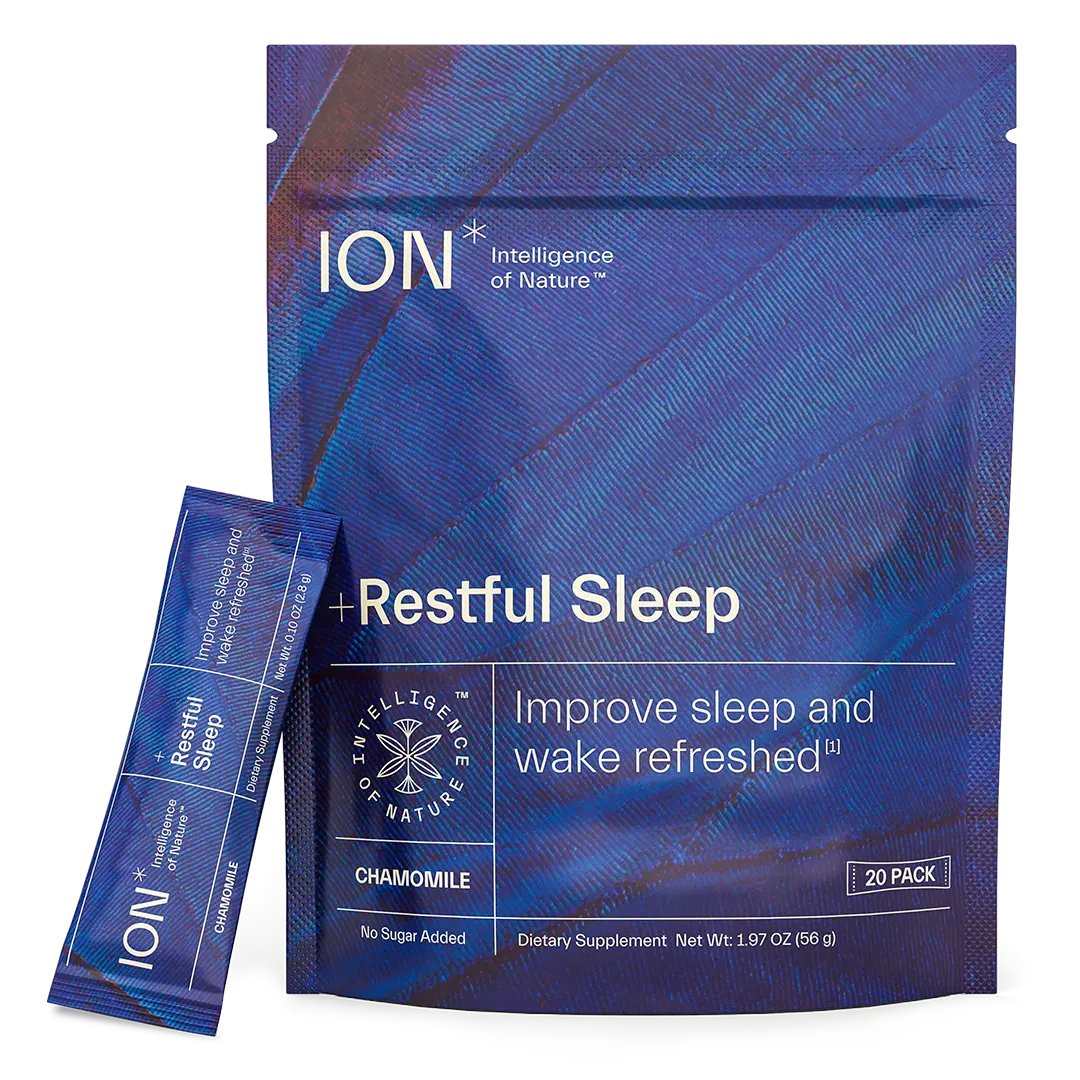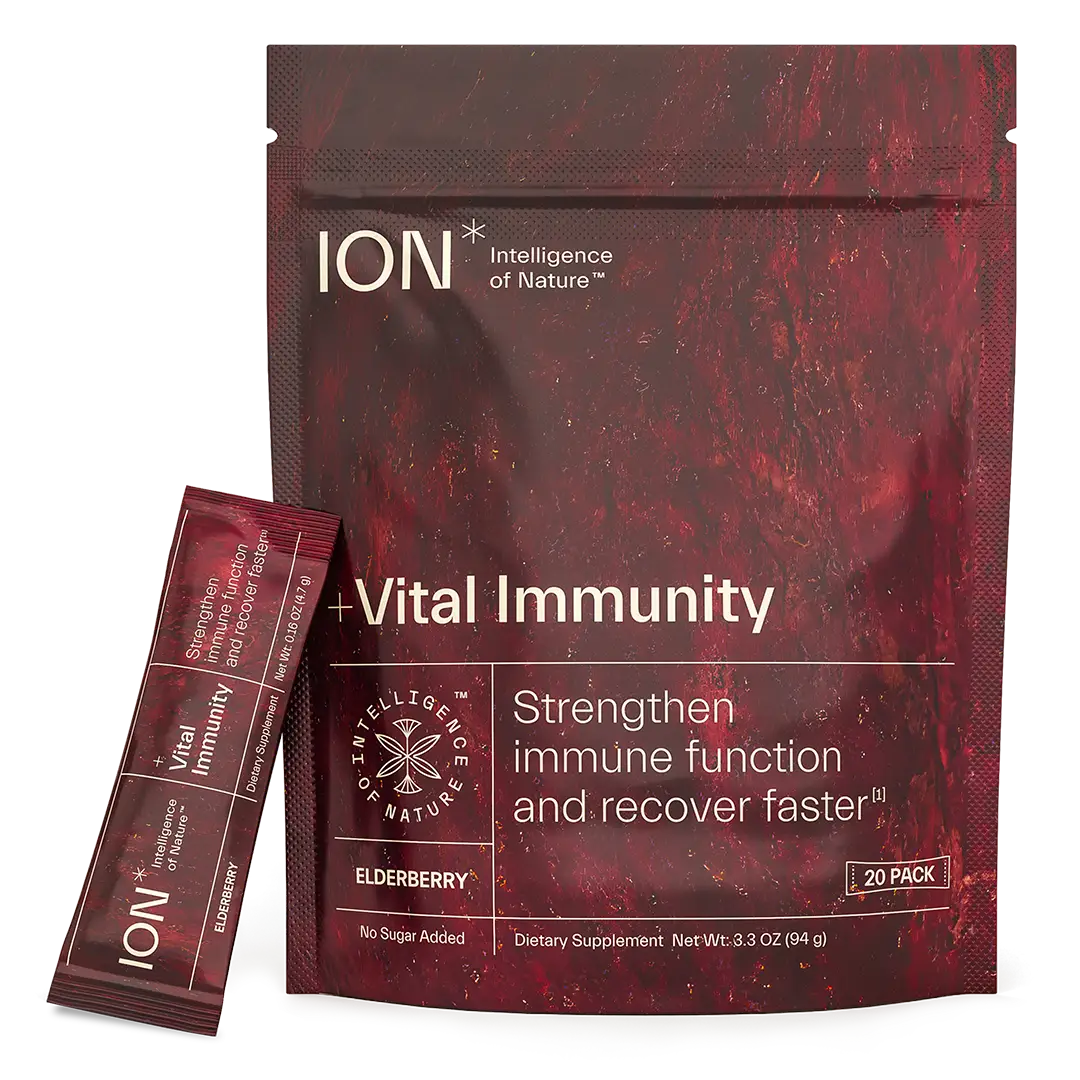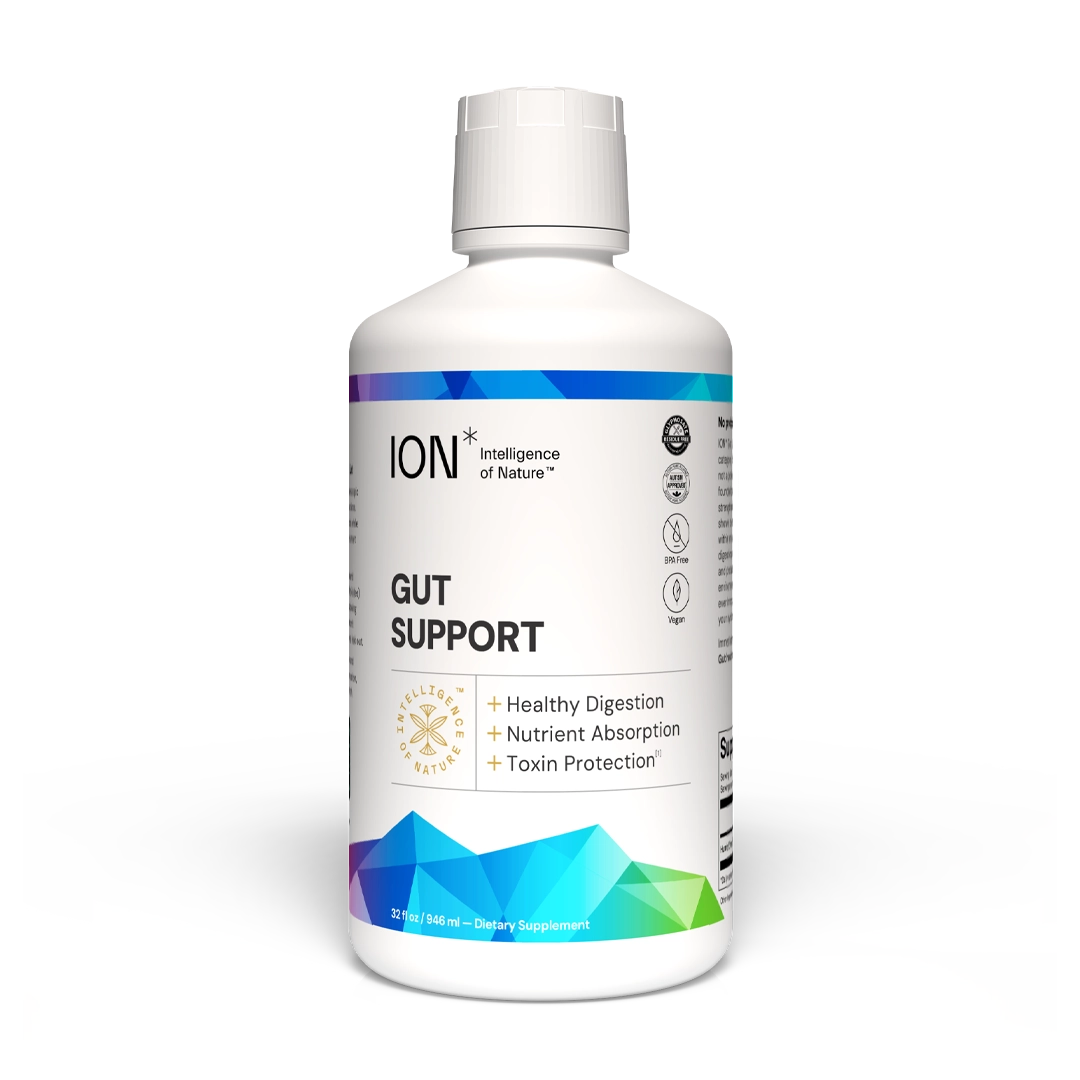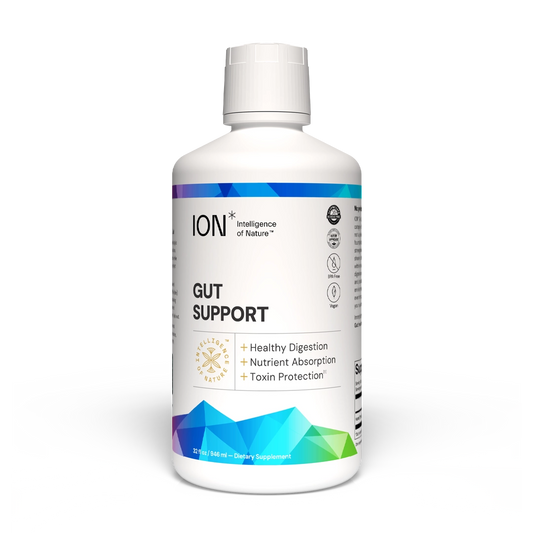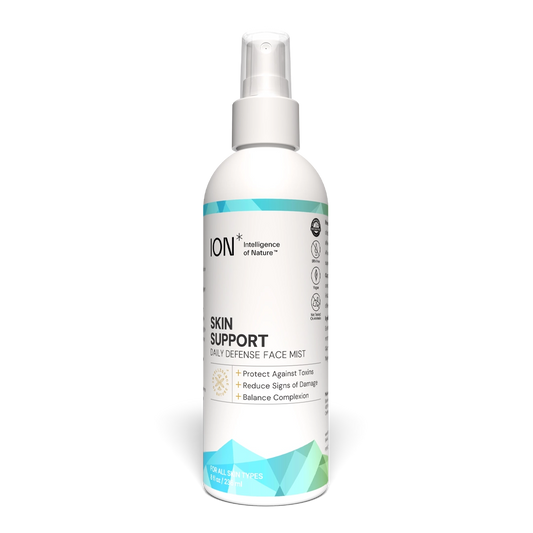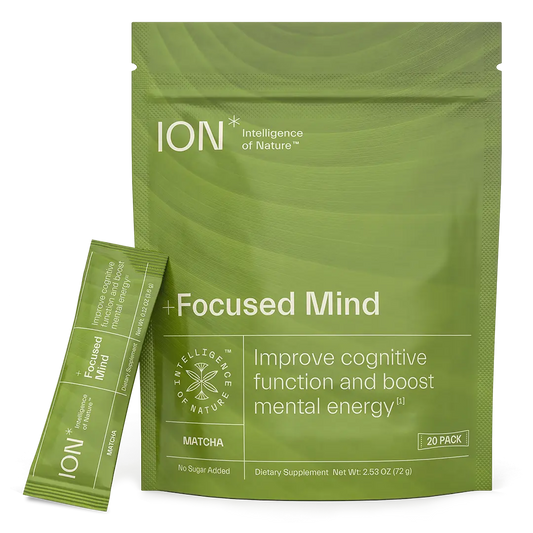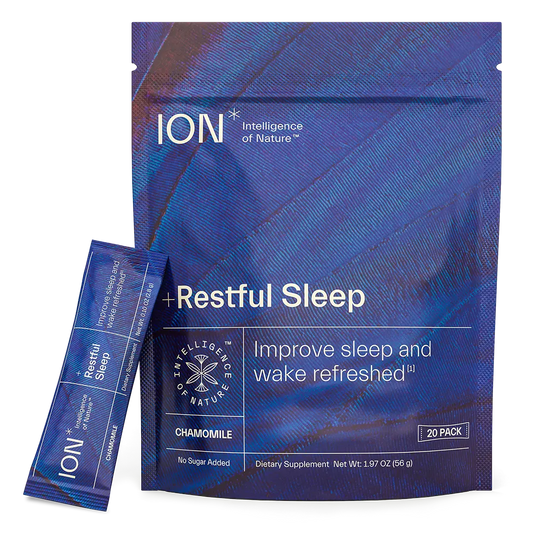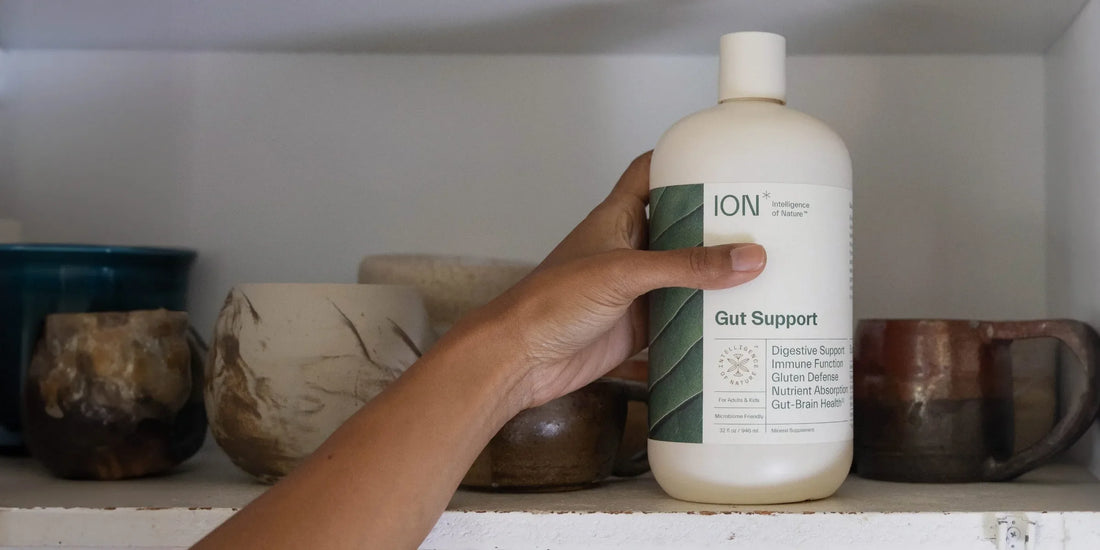
How is ION* Gut Support Different from Probiotics?
If you’ve been part of the ION* family for a while, you know that ION* Gut Support is a groundbreaking type of gut health supplement. If you’re new, you’ve come at just the right time!
ION* Gut Support (formerly ION* Biome and Restore Gut Health) is not a probiotic or a prebiotic; it contains carbon molecules sourced from ancient fossilized soil (more on that further down). And while the buzz surrounding how to improve gut health has mostly centered on probiotics for quite a while, it’s time we start to look at where real gut health begins.
First, the purported benefits of probiotics have been overstated. Recent studies have found that probiotics used after a course of antibiotics actually delayed gut health recovery in test subjects1. If used long-term, a “monoculture” (or an overpopulation of the few strains in the probiotic formula) can develop. With each species of gut flora specializing in helping drive specific functions in the body2, a monoculture could actually hinder gut health.
A healthy gut needs a balanced diversity of thousands of species working together to drive health in the body – much more than one could achieve by replicating the same strains of bacteria over and over again. In fact, it has been estimated that a healthy human gut contains as many as 20,000 species of gut flora. Probiotics only contain up to 24. So, how does ION* Gut Support improve gut health naturally? It all comes down to healthy communication.
Microscopic Communication Can Improve Gut Health Naturally
Gut bacteria communicate with each other to drive health in the entire body. They communicate with the cells of the gut lining to digest food, to create and send neurotransmitters that support brain health, and to help regulate immune responses. Instead of actively changing the balance of the gut microbiome, ION* Gut Support acts as a communication network that helps bacteria communicate better with each other and with the body’s cells.
Digging deeper, ION* Gut Support’s unique carbon molecules support the native communication network between gut flora and the gut lining. This fascinating communication – called redox signaling – is what allows the microbiome and the gut lining to function together intelligently. When gut flora and the gut lining can communicate effectively, the gut can create balance and health, on its own. It’s impossible to overstate the impact that gut health (and balanced, diverse gut flora) has on overall health.
Gut Health Also Boosts Immunity
A balanced diversity of gut flora can have profound benefits for immunity. About 70% of your body’s immune system resides directly behind your gut lining. That means your immune system is in the line of fire so to speak of any irritants that get through a damaged or weak gut lining, leading to inflammation and ultimately to chronic inflammatory conditions. Exposure to common irritants such as gluten and pesticides in our environment have been shown to directly damage the delicate yet resilient gut lining. Once it’s damaged, toxins and food particles seep through the lining and trigger inflammation responses that irritate the immune system. The ION* product suite is a revolution for your body (along with your kids’ and pets’ bodies), supporting its innate ability to drive health from within.
Improve gut health by going beyond probiotics, promoting healthy communication within the microbiome, and boosting your body’s immune health with ION* Gut Support.
References
- al, Suez et. Post-Antibiotic Gut Mucosal Microbiome Reconstitution is Impaired by Probiotics and Improved by Autologous FMT. Cell. [Online] 09 06, 2018. https://www.cell.com/cell/fulltext/S0092-8674(18)31108-5.
- Dobrijevic. Functional Comparison of Bacteria from the Human Gut and Closely Related Non-Gut Bacteria Reveals the Importance of Conjugation and a Paucity of Motility and Chemotaxis Functions in the Gut Environment. PLOS ONE. [Online] 07 16, 2016. https://journals.plos.org/plosone/article?id=10.1371/journal.pone.0159030.
